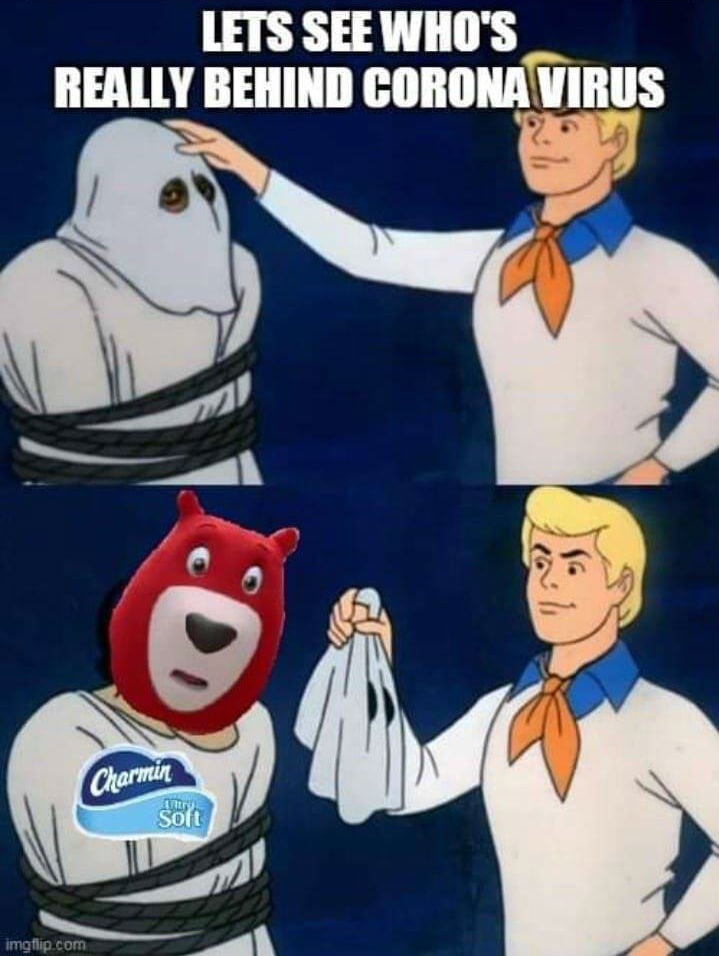
1) Heyyyy Maskarena
As I and a bunch of other people predicted last week, masks are the new soul patch - everybody wants one but nobody really knows why.
One distinction that has come up lately is the different between masks - N95 vs surgical masks and everything else is what I think it usually comes down to.
The N95 mask is the one we are conserving for healthcare personnel. It filters out 95% of particles over 0.3 microns (coronavirus is supposed to be between 0.2-0.5 microns) BUT it needs to be on properly to do that. It's tough enough to do that every year we have to go through a retraining process to make sure we can get it fit correctly. In addition, if you're really worried about droplet exposure, you're also supposed to be wearing goggles or a face shield to keep the particles from getting into your eyes. So that combination is good for healthcare workers who are actually coming into close contact with someone they have a high suspicion for having COVID-19 (coronavirus). N95 masks are not comfortable and put a lot of pressure on the cheeks and nose and most people who haven't been trained wear them too loosely to have the desired effect.
The name for surgical masks comes because they are the main thing worn in surgical suites to keep people involved in the surgery from breathing or accidentally discharging droplets from their face. They do little to nothing to prevent breathing droplets in because they are not tightly fit around the face. Why are they being recommended? Probably because we think that people with minimal or no symptoms are transmitting COVID-19 (coronavirus) and this is a good way to prevent that from happening in public. I also think, as mentioned last time, they are a good reminder not to touch your face (though they don't help with your eyes and some studies have found people touch their face more while wearing masks to adjust them). But with all the talk about how long COVID-19 (coronavirus) can live on surfaces, the main risk then becomes getting it on your hands and transmitting it to your mouth/nose/eyes so it can get deeper in your system.
I'm personally going around in a neck-gator while in public because it seems like I won't get the chance to use it on the ski slopes again this season and it does keep my face nice and warm. So anything is probably better than nothing, but again remember you're wearing a mask in public mainly to keep you from passing things on to others and also as a reminder not to touch your face until after washing your hands (this includes before eating).
2) Myyyyyyy Corona!
This question comes from my mom: "Why is it called a coronavirus?"
If you didn't know, coronaviruses have been around forever and there are a few different types that have been commonly circulating for a long time among humans which cause mild colds most of the time. There are also strains that circulate more in the animal community and we're in trouble now because of zoonotic spillover, where humans catch animal viruses.
But the way the class of viruses was named comes from the spike-like projections on the virus that allow it to latch onto and invade cells because under an electron microscope, somebody thought they looked like little crowns and hence the Latin version, corona.
3) Serology Testing
This question comes from my mother-in-law: "Do you think y'all will get blood tests done before you come visit?"
Probably not, because I can't imagine my kids willingly doing it. But here is some important information about this new test:
- Currently it's still a research tool
- PCR testing (swab) is still recommended over serology (blood sample) for determining whether a person has Covid-19 disease
- A reliable commercial serology test is not yet available.
- Commercial kits currently being sold have not been well evaluated and may give incorrect results.
- The test is not known to accurately predict immunity to coronavirus and should not be relied upon for this purpose.
So it is not currently being used in the general public. I've heard that some people at Stanford are having it done - I don't know much about this aside from this article with more details. It sounds promising but we're waiting to see how things work out from here.